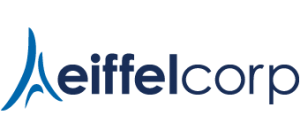Johannesburg
+27 (0) 11 234 4000

(Eiffel Corp — March 1, 2017)
The University of Johannesburg (UJ) is the first university outside of the USA to implement Blackboard Predict, a predictive solution that analyses student’s data and activities in blended and online learning environments to provide educators with the timely information they need to help students successfully complete their courses.
Blackboard Predict is part of Blackboard’s robust portfolio of teaching and learning solutions offered by Eiffel Corp, leaders in educational technology across Africa.
According to Thea de Wet, Director of the Centre for Academic Technologies (CAT), the on-boarding of this technology is part of their mandate as an African-focussed university, based in Johannesburg and committed to contributing to the fabric of society.
“We have a responsibility as a higher education institution to do everything within our means to ensure student success. Academic failure is just one of the reasons why students do not succeed at university: insufficient financial support, psychosocial challenges, poor career choice and under-preparedness are some of the contributing factors”, said de Wet.
Blackboard Predict makes use of an institution’s existing data from their existing student information and learning management systems to create a predictive model that provides early identification of students at risk of failure, helping drive focussed interventions by lecturers, tutors and professional academic counsellors to support these students proactively.
UJ plans to roll out the platform in their blended learning programmes from semester two, 2017.
“Our academic structure is very different to the US, and Blackboard Predict’s fully customisable model perfectly adapts to the SA environment and our specific needs”, she added.
“The roll out of Blackboard Predict will be supported by a tailor-made intervention programme at UJ. The institution operates on a best practice and best evidence model, so we will be looking at institutions around the world, to gain their insight about adding this predictive solution to our already extensive tutoring system and health and psychosocial services”.
De Wet expanded that the financial investment in the platform per head is far less than allowing students to fail.
“If students drop out we not only lose revenue from fees but also from government subsidy; input subsidy received when students start university and output subsidy upon graduation. In addition, there is a heavy socio-economic burden on individuals, families and communities when students do not complete their studies.”
According to the Education Framework, only 35% of the total student intake and 48% of contact students, graduate within 5 years.
Sakkie Smit, Director of the Centre for Innovative Educational Technology at Cape Peninsular University of Technology (CPUT) added: “While looking at recently published DHET data, 13,7% of students complete a three-year degree in the allocated time. With an additional two years, the pass rate doubles to between 35%-50%. After taking seven years to complete a three-year qualification – the pass rate is up to 75%. We loose 20-22% of students in their first year and I believe we could change these statistics by increasing student engagement.”
At influencer sessions (organised by Eiffel Corp) around the country last year, Richard Burrows, UK-based Blackboard Analytics Specialist said that with the demand for the massification of education in SA, education institutions, like businesses, would have to find smarter ways of working.
“Education institutions that use data to respond and improve processes and enable student success will have an advantage”, said Burrows.
“With students under additional pressure from #feesmustfall, investment in student success is a key in stabilising the education sector in SA”, said Stefan du Plessis, Eiffel Corp’s Commercial Director.
+27 (0) 11 234 4000
+27 (0) 21 782 2993

 GOING GLOBAL 2016
GOING GLOBAL 2016